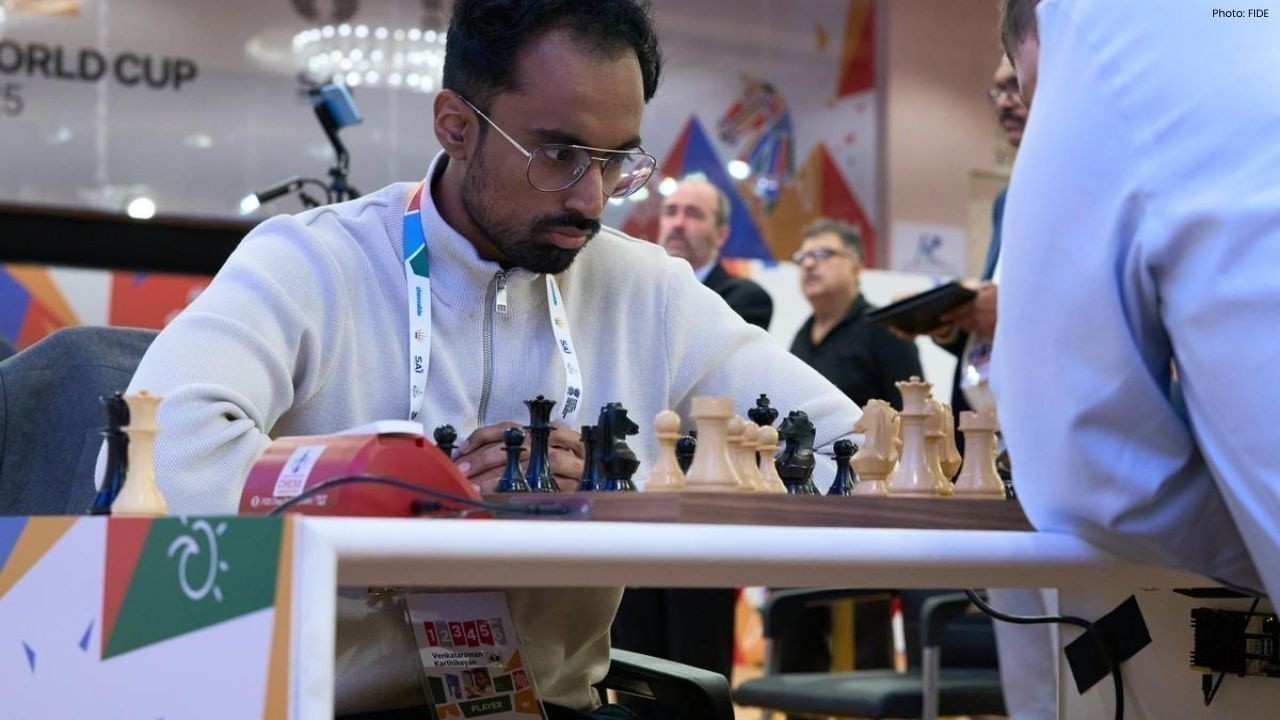
Post by : Sam Haleem
The world of technology is evolving faster than ever, and one of the most exciting advancements shaping our future is quantum computing. You’ve probably heard this term in tech news or science discussions, but what exactly does it mean? Simply put, quantum computing is a new way of processing information—one that uses the strange and fascinating principles of quantum physics to solve problems far beyond the reach of traditional computers.
From drug discovery and financial modeling to climate prediction and artificial intelligence, quantum computing has the potential to revolutionize nearly every industry. Let’s explore what makes it so unique, how it works, and why it’s considered the future of innovation.
To understand quantum computing, it helps to first look at classical computing, which powers our laptops and smartphones today. Traditional computers process information in bits, represented as either 0 or 1. Every calculation, from sending an email to running a complex program, is based on these binary codes.
Quantum computers, however, use something much more powerful: quantum bits, or qubits. Unlike regular bits, qubits can represent 0, 1, or both at the same time—a concept known as superposition. This means quantum computers can process multiple possibilities simultaneously, making them exponentially faster and more efficient for certain tasks.
Quantum computing operates on three main principles of quantum mechanics: superposition, entanglement, and interference.
Superposition:
As mentioned, a qubit can exist in multiple states (both 0 and 1) at once. This allows quantum computers to perform many calculations simultaneously, greatly increasing processing power.
Entanglement:
This is a mysterious quantum phenomenon where two or more qubits become linked, meaning the state of one instantly affects the state of another, no matter how far apart they are. Entanglement helps quantum computers connect qubits in powerful ways, boosting their ability to solve complex problems.
Interference:
Quantum computers use interference to amplify correct results and cancel out incorrect ones. This ensures that after millions of possible outcomes, the most accurate solution rises to the top.
By combining these three principles, quantum computers can process massive amounts of data at lightning speed, performing tasks that would take even the world’s fastest supercomputers thousands of years.
To visualize the difference, imagine trying to find the right key for a locked door.
A classical computer would test each key one by one until it found the right one.
A quantum computer, using superposition, could test all keys at once and find the correct key almost instantly.
This immense parallel processing power makes quantum computing perfect for solving optimization problems, cryptography, and data-heavy simulations.
Despite its promise, quantum computing is still in its early stages. Several challenges need to be addressed before it becomes mainstream:
Fragile Qubits:
Qubits are extremely sensitive to environmental noise like temperature and vibration. Even minor disturbances can cause errors.
Error Correction:
Maintaining accuracy in quantum systems requires complex error-correcting codes, which scientists are still perfecting.
High Cost:
Building a quantum computer involves cryogenic cooling and specialized materials, making them very expensive.
Scalability:
Current prototypes have only a few hundred qubits, while real-world applications need thousands or even millions to work efficiently.
Researchers and major tech companies — including IBM, Google, and Intel — are working hard to overcome these barriers.
The global race to build the first fully functional quantum computer is fierce.
IBM has developed “IBM Quantum System One,” one of the first commercially available quantum computers.
Google achieved a milestone in 2019 by claiming “quantum supremacy,” where its quantum computer performed a task faster than a traditional one could.
D-Wave Systems and Rigetti Computing are exploring different approaches to quantum processing.
Meanwhile, governments worldwide — from the U.S. to China and Europe — are investing billions into national quantum initiatives.
This competition is not just about technology but also about economic and national security, as quantum computing could transform industries from defense to healthcare.
Experts believe that within the next decade, hybrid computing systems — combining classical and quantum processors — will become more common. Cloud-based quantum services are already being offered by major tech firms, allowing researchers and developers to experiment remotely.
As technology improves, costs will drop, and more industries will gain access to quantum tools. Education systems are also beginning to introduce quantum science into curriculums to prepare the next generation of quantum engineers and programmers.
Quantum computing isn’t just a technological breakthrough; it represents a paradigm shift in how we solve problems, store data, and understand the world.
The future of quantum computing is both exciting and unpredictable. From unlocking new medical breakthroughs to designing smarter cities, its possibilities are nearly limitless. Yet, as we move toward a quantum-driven future, it’s vital to balance innovation with responsibility — ensuring this powerful technology benefits all of humanity.
Quantum computing is no longer science fiction. It’s the next chapter in human progress, and we are only beginning to turn the first page.
This article is intended for general informational and educational purposes only. It does not represent technical advice or expert analysis. Quantum computing is a rapidly developing field, and details or examples mentioned may evolve as new research emerges.

NHS Surgeon Explains Why Miso Soup Is Great for Gut Health and Weight Loss
Learn how miso soup can improve gut health, support weight loss, and make you feel full for longer,

Dietician Shares 5 Foods to Boost Metabolism Naturally: Quinoa, Greek Yoghurt and More
Learn which 5 everyday foods can naturally improve your metabolism, help burn calories, and increase

Akasa Air to Launch New International Flights from Delhi, Expands Fleet
Akasa Air plans international departures from Delhi, eyeing Singapore, Indonesia & more, while expec

Aditi Rao Hydari Shares Her Makeup Mantras: Red Lips, Simplicity, and Confidence
Aditi Rao Hydari shares her beauty secrets at Nykaaland, highlighting red lipstick, minimal makeup,

Warren Pushes Pentagon Repair Rights, Targets Defense Lobby
Senator Warren urges defense firms to support military repair rights, aiming to cut costs, speed mai

US Woman Born With No Brain Defies Odds, Celebrate 20th Birthday
Alex Simpson, born with no brain, celebrates 20th birthday, defying doctors’ odds. Her rare hydranen

Millie Bobby Brown Shines in Black Sequin Dress at Stranger Things FYSEE Event
Millie Bobby Brown stuns fans in a black sequin dress at Netflix FYSEE event in Los Angeles, ahead o

Saba Azad Cheers Hrithik Roshan's Niece Bakery Launch
Hrithik Roshan's niece Suranika opens The Moon Beam Bakery; Saba Azad shares a heartfelt Instagram s

Jets Make History with Two Special Teams Touchdowns
The New York Jets made franchise history with two special teams touchdowns in one quarter, defeating

Chargers Beat Steelers 25-10 as Herbert, Defense Shine
The Los Angeles Chargers beat the Pittsburgh Steelers 25-10 at home. Justin Herbert impressed while

Rams Beat 49ers as Adams Injures Oblique Late in Game
The Los Angeles Rams beat the San Francisco 49ers 42-26, but Davante Adams left in the fourth quarte

Jurel’s Batting Form Puts Pressure on Team Selection
Dhruv Jurel’s great form before the South Africa Tests gives India’s selectors a tough choice as Ris

Indian GM Karthik Marches into FIDE World Cup Fourth Round
GM Karthik Venkataraman defeated Bogdan-Daniel Deac in tiebreaks to reach round four of the FIDE Wor

Ryan Williams Joins Indian Camp After Citizenship Change
Ryan Williams, who gave up his Australian citizenship, has joined India’s football camp in Bengaluru

Japan Goalkeeper Zion Suzuki Withdraws Due to Injury
Japan’s goalkeeper Zion Suzuki withdraws from matches against Ghana and Bolivia after suffering wris